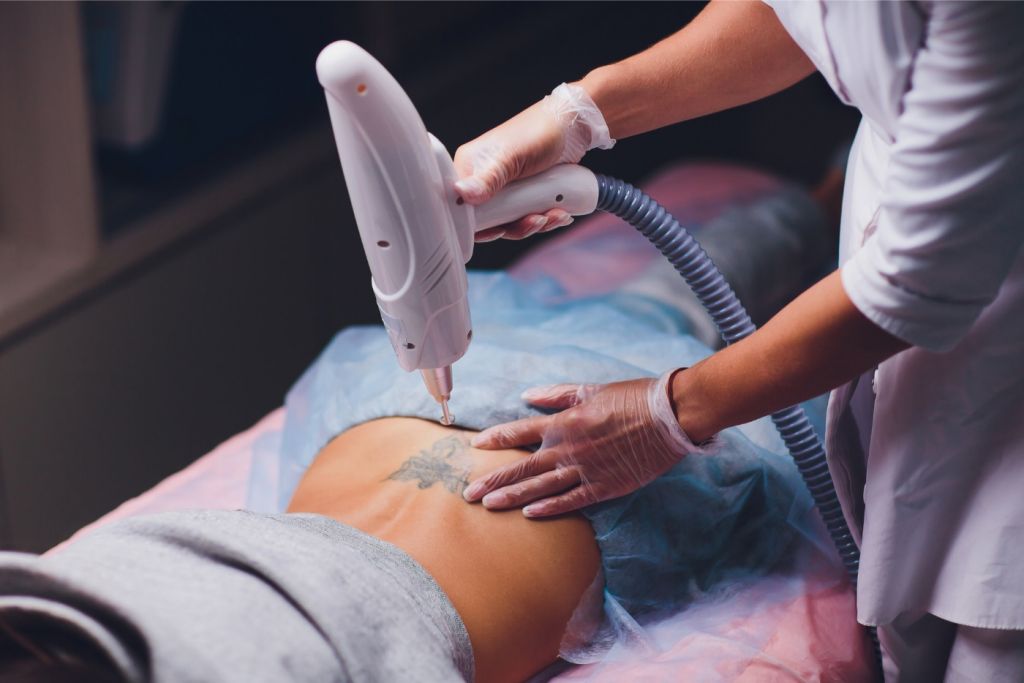When considering the etiquette of tattoo removal, you might wonder whether tipping is expected. This article explains if and how much to tip for tattoo removal. It provides tips based on session time, effort, and cost.
Tipping for tattoo removal is not typically expected as it is often considered a medical or aesthetic procedure. However, if the service exceeded your expectations, a small tip of $5 to $10 could be offered as a gesture of thanks.

When considering tattoo removal, you might wonder about the etiquette surrounding tipping for such a service, especially as it differs from getting a tattoo.
While tipping is a common practice for personalized service at a tattoo shop, it's less clear-cut when it comes to laser tattoo removal. Typically, this service is viewed more as a medical or cosmetic procedure rather than an artistic undertaking like tattooing. It's not customary to tip for medical services, but if you believe the technician went above and beyond, a gratuity is a way to express your gratitude.
When you do choose to tip, consider the standard at a tattoo shop, which is often around a 15% tip for a tattoo artist. Despite the differences in service type, if you perceive your tattoo removal experience similarly to that of a personalized service, tipping could mirror that of a tattoo shop experience. However, remember that there is no established obligation to tip for tattoo removal, and it should be guided by your level of satisfaction with the service provided.
When considering tattoo removal, you're looking into a process that aims to eliminate the ink from your skin that was once considered permanent. There are several methods for removal, and various factors influence their effectiveness and your experience.
Laser Tattoo Removal: This is the most common method, employing Q-switched lasers that release energy in a single, powerful pulse to break down ink. The Q-switched ND
Dermabrasion: This technique sands down the skin, effectively "wearing away" the layers that contain the tattoo ink.
Surgical Removal: In some cases, the tattooed area of skin can be cut out, and the skin is sutured back together.
Tattoo Removal Creams: These topical solutions claim to fade tattoos over time, although their effectiveness can vary widely and they might not be as effective as laser methods.
Going through a tattoo removal session can be a significant experience. It's important to understand what you'll encounter during the procedure and how to manage your post-treatment recovery effectively.
During laser tattoo removal, you'll likely experience some discomfort, often described as a sensation similar to the snap of a rubber band against your skin. Providers may offer a local anesthetic to alleviate pain. It's normal to notice some immediate skin reactions, such as swelling or blistering. Procedures like dermabrasion, surgical excision, and chemical peels are alternatives, each with varying levels of discomfort and potential for scarring.
After treatment, the recovery process involves steps to avoid infection and ensure proper healing. Your provider will recommend keeping the area clean and might advise using a mild soap. It's crucial to protect the area from sunlight, so applying sunscreen is recommended once the skin has healed enough. Recovery time varies, but following post-care instructions reduces the risk of scarring and allergic reactions.
When considering getting rid of your ink, understanding the cost of tattoo removal is crucial for planning your budget effectively.
Tattoo artist and clinic variations: The fees you encounter might differ depending on the reputation and location of the tattoo artist or dermatologist you consult. Laser treatments are commonly charged per session, and the number of sessions needed can depend on the size, color, and age of your tattoo. It's smart to get a detailed quote upfront to avoid surprises.
Insurance and hidden costs: Tattoo removal is often considered a cosmetic procedure, which means it's typically not covered by insurance. Be mindful of potential additional costs like consultation fees or aftercare products.
Remember, each method has benefits and drawbacks, and it's your responsibility to research which fits your budget and desired outcome.
When considering tattoo removal, you're embarking on a journey that will significantly alter your skin's appearance. It is a process that can potentially fade your tattoos and restore your natural look or prepare your skin for a new design.
Tattoo removal technologies have come a long way, and the future seems even more promising. Innovative laser technologies aim to make tattoo removal more effective, with fewer sessions needed. For example, picosecond lasers are designed to eliminate tattoo ink with greater precision and less damage to surrounding tissue. This means a reduced risk of scarring and a smoother healing process for you.
New advancements are also focusing on how to better commemorate the tattoos you love by making it easier to remove only parts of a tattoo or lighten them just enough for a cover-up. As the industry moves forward, the hope is that tattoos will fade uniformly and without leaving a trace, providing a clean canvas should you choose to express yourself with ink again.
Remember, each tattoo removal experience is unique, and these advancements aim to tailor the process to your individual needs, potentially decreasing the time it takes to fade the tattoo and minimizing any discomfort associated with the removal.